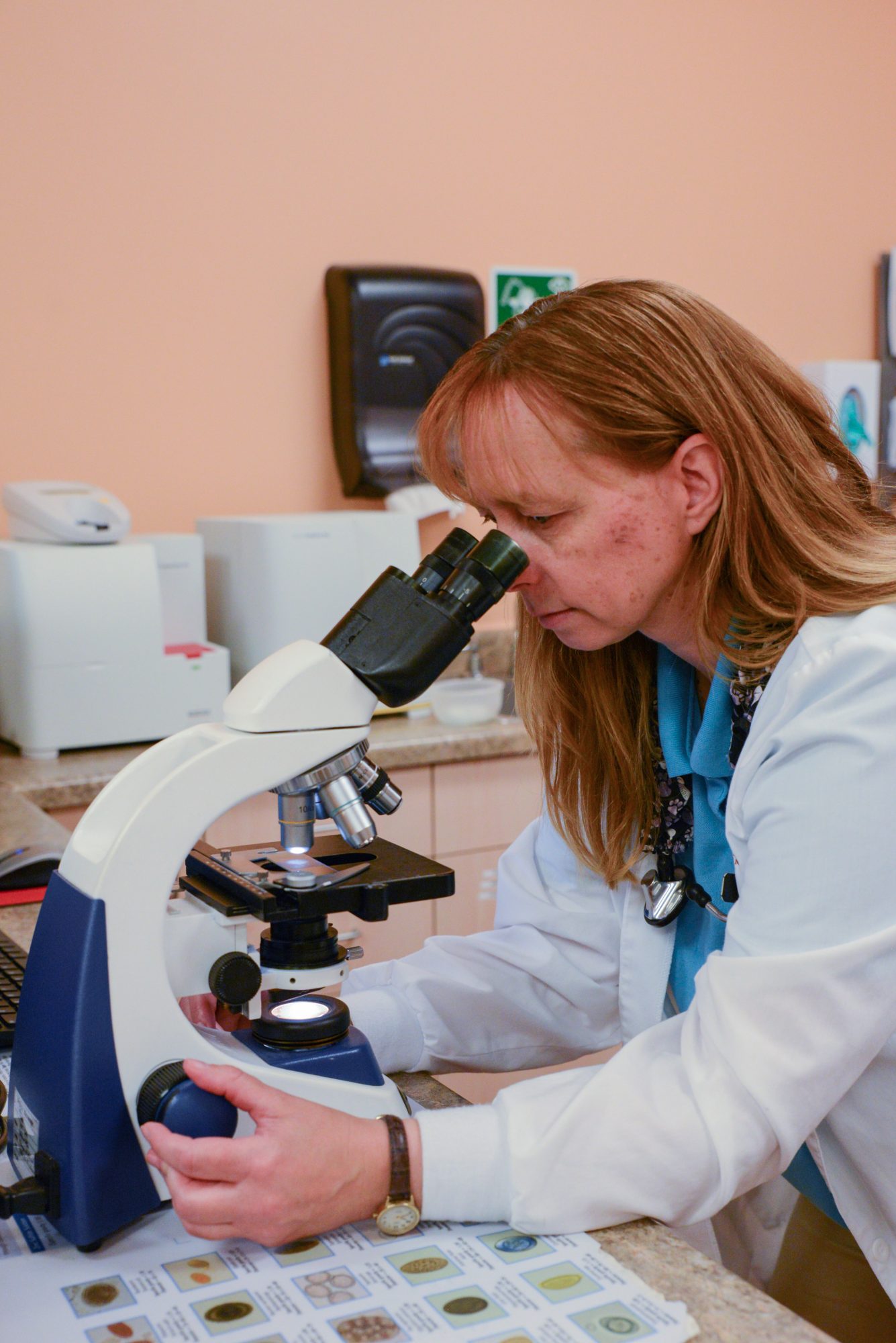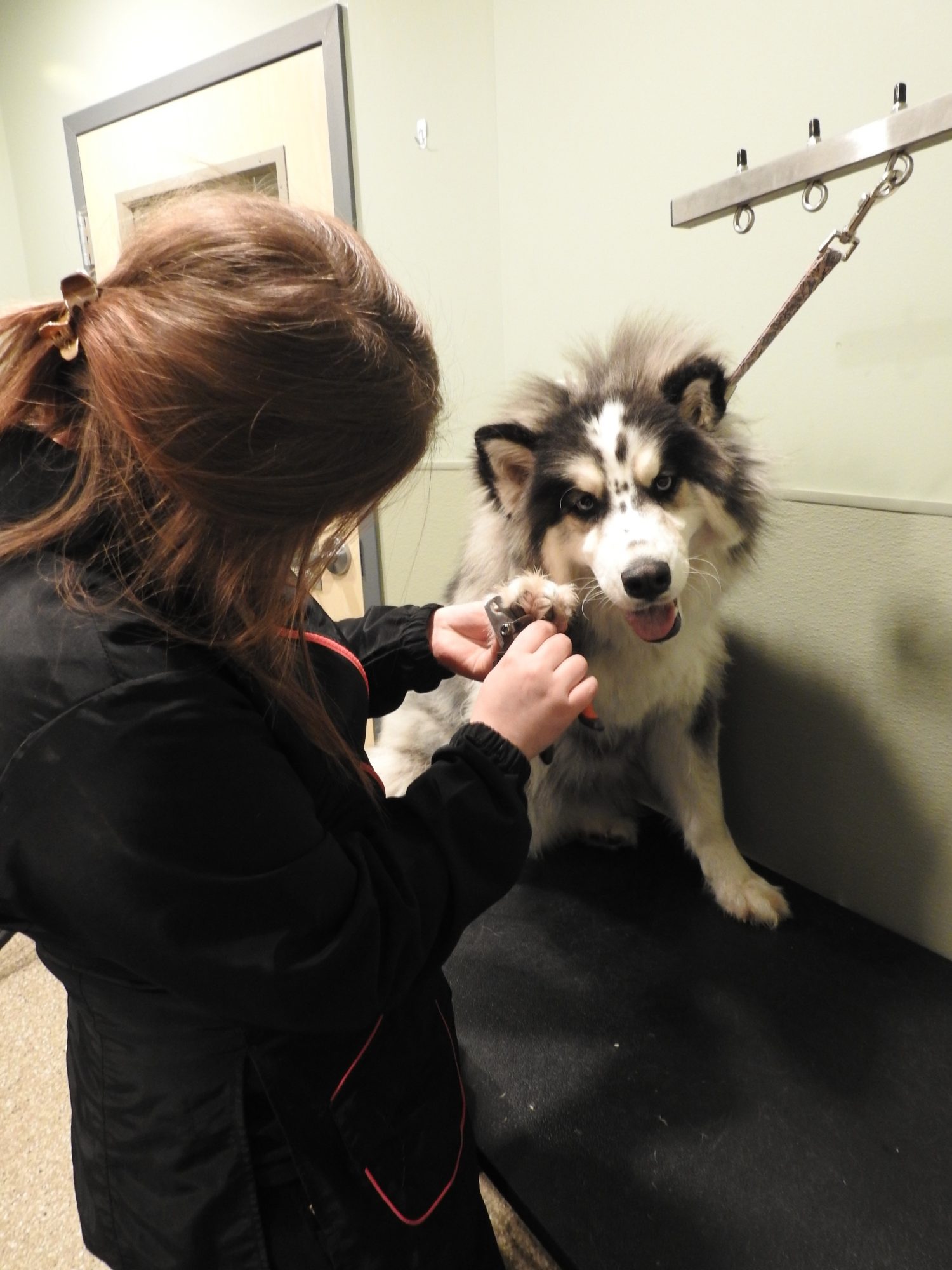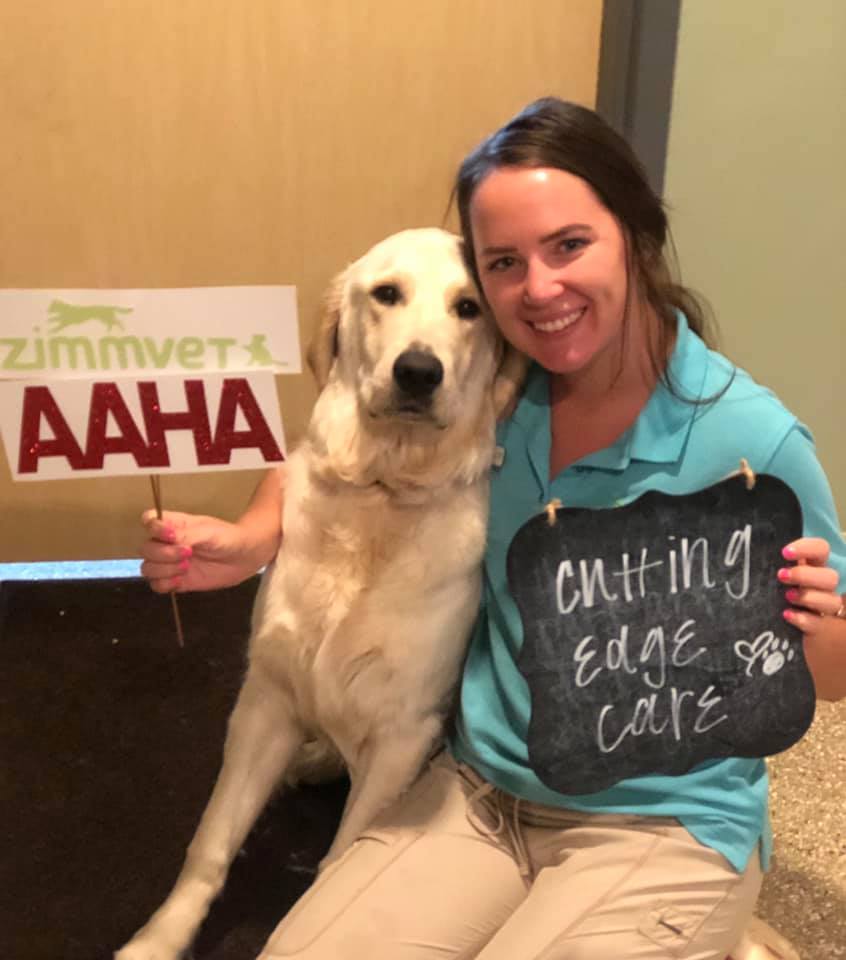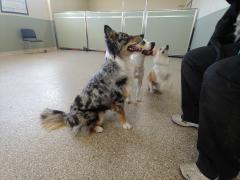Our Blog
Get Your Dog Ready for Hunting Season
By Dr. Maria Krenz, DVM – ZimmVet-763-856-4848

Many people enjoy hunting as a hobby with their dogs. A little preparation can make the time fun for you and your dog.
Flea & Tick Prevention
Fall is peak time for transmission of lyme disease from adult ticks. Fall is also when many pets become infested with fleas. There are a variety of products on the market including topical and oral options. Talk to your veterinarian about what product is best for you pet.
Internal Parasites
Hunting dogs are at higher risk to contract roundworms and hookworms from the environment. These parasites can then be passed to people. Heartworm prevention, such as Interceptor®, deworms for these parasites and should be given once a month.
Continue…All About Fleas
By Dr. Maria Krenz, DVM – ZimmVet-763-856-4848

Fleas
In Minnesota fall and early winter is the most common time we see flea infestation in pets. No pet is immune to these tiny parasites. Mice are common carriers of fleas. In the fall time mice are looking for places to survive the winter and can end up in garages and basements. The mouse then sheds flea eggs where they travel in the house.
Flea Myths
Myth: My Pet cannot get fleas because they are indoor only. Truth: Fleas thrive indoors
Myth: My Pet does not have fleas because they are not biting me. Truth: Adult fleas will only bite humans as a last choice, so often humans do not get bit.
Myth: If my pet has fleas I would see them. Truth: Fleas are often not seen on the pet until the infestation is severe. Pets will also lick fleas away before you see them.
Myth: My pet has never had fleas so I do not need to use prevention. Truth: Any pet can get fleas and unfortunately it is a lot more difficult to get rid of them vs preventing.
Continue…Nail Trimming Vs. Nail Grinding
Samantha Sams CPDT-KA Trainer/Pet Groomer- ZimmVet

As a pet Owner we are always wanting what is best, or healthiest for our pets. Consistent nail care is sometimes overlooked, but a crucial part of your dogs well-being. Toenails that are kept too long have the possibility of causing joint discomfort in the future. Broken nails are also a common problem, and are stressful on everyone involved.
We recommend a consistent nail care schedule. Most dogs it is recommended every 6-8 weeks. With dogs requiring haircuts, this typically falls nicely into their Grooming appointments anyway. But with shorter coated breeds, we tend to forget.
Continue…A Day to Celebrate Champions for Excellent Care
By: Rebecca Brethorst, Certified Veterinary Technician at ZimmVet
AAHA ACCREDIETED HOSPITAL DAY JULY 22nd 2019

“AAHA day” is designated to educate pet owners about what accreditation means for their pets and to thank accredited hospitals for holding themselves to a higher standard.
Unlike human hospitals, animal hospitals are not required to be accredited, a fact that is not common knowledge to many pet owners. Only (12-15%) animal hospitals in the United States and Canada have gone above and beyond to become accredited.
Being accredited means that your hospital holds itself to a higher standard, and that your pet is receiving care at a hospital that has been evaluated on over 900 standards. AAHA guidelines are professional recommendations that help veterinary hospitals continue to deliver the highest standard of care with the latest in veterinary medicine. AAHA standards are based on practice protocols, medical equipment, facility and client service.
AAHA is the only organization that accredits veterinary hospitals in the US and Canada, which allows them to set the standard for quality veterinary care for companion animals.
ZimmVet is proud to be AAHA. ZimmVet will be celebrating AAHA day on Monday July 22, 2019. We will be taking pet pictures and offering giveaways and snacks. See our display of staff pictures on why we believe being AAHA Accredited is important.
Fear, Anxiety, and Stress in Dogs
By Katie Pankratz ZimmVet Daycare Professional

Have you noticed your dog experiencing fear, anxiety, or stress (FAS)? Have you wondered how to help your pet through this process? ZimmVet can help! This post will give some basic information about FAS, while giving options and strategies to help ensure the highest quality of physical, mental, and emotional health. For more information about any strategy or product listed please contact us at ZimmVet 763-856-4848 or email us at Info@zimmvet.com.
What Causes FAS?
To begin, we first need to look at what causes FAS. It can be difficult for dogs to adjust to new sights, sounds, and scents of an unfamiliar place and can easily become overwhelming for them. Some dogs can become more comfortable quickly in these new situations, while others can require more support and encouragement to maintain their physical, emotional, and mental wellbeing.
Continue…The Benefits of Basic Obedience Commands
By Darian Smock ZimmVet Daycare Professional

While watching obedience competitions is fun and impressive, your pup doesn’t need to be at that level to be a pleasant companion in the home. Teaching your dog a few basic, but essential, obedience commands can build a strong foundation for reliable and compliant behavior. Let’s check out our four core skills every dog would benefit from knowing.
“Sit”
Sit is a basic positional command that puts your dog in a controlled position that gets their attention back on you. Having your dog’s attention is the first step to building up to a series of commands. “Sit” is a good way to get your dog under control and is also a good pre-cursor to more complex commands such as “Stay”.
Continue…Celebrating The 4th Of July With Your Pet
By Katie Pankratz ZimmVet Daycare Professional

It is quite common for dogs especially puppies to experience fear, stress, or anxiety when it comes to loud noises. With the 4th of July right around the corner you may be wondering how to help comfort them during this time. There are many options out there to assist with this and ZimmVet can provide you with the tools and information you need to help your furry friend.
While there are many options to help with fear, stress, and anxiety, there are a few specific ones known to help calm your dog in situations such as these. Below you will find those that are recommended and some information about each:
Continue…Is my dog having a stroke?
By: Laura Scharenbroich ZimmVet Daycare Professional
What is the difference between a heat stroke and a stroke? The underlying factor for a heat stroke is heat. However a stroke may be caused by an underlying problem.
What is a stroke
A stroke is loss of blood flow to parts of the brain that leads to neurological abnormalities.
There are two causes for strokes in dogs: an obstruction in blood vessels (ischemic strokes) which occurs due to blood clots, tumor cells, clumps of platelets, bacteria and parasites; and bleeds in the brain (hemorrhagic strokes). These result from the rupture of blood vessels or clotting disorders.
Continue…Barks and Wedding Bells
Kari Meyer, ZimmVet Manager

How to Include Your Dog in Your Wedding
Congratulations on your upcoming wedding day! Its an exciting time for you and your partner! It’s only natural to want to include your fur-baby too! There’s so much that goes into wedding planning, and preparing your dog is no exception. Lucky for you, ZimmVet is here to help with tips, tricks, support, and resources to help your Dog of Honor, Flower Dog, or Ring Barker put his best paw forward on your special day!
Continue…Grooming At ZimmVet
By Michaela Tallant Groomer- ZimmVet 763-856-4848

Meet ZimmVet’s groomers
Grooming at ZimmVet has been in demand! Stop in today to meet Sam and Michaela, our resident groomers. Professionally trained with Fear Free techniques, their gentle handling will have any pet feeling right at home and relaxed while being groomed. With a variety of packages and add-ons available, Sam and Michaela will be happy to adapt their services to your pet’s needs.
- Both groomers are comfortable working with all breeds, and all sizes of pets.
- We are excited to be offering Basic Grooms, Full Service Grooms, Premium Grooms, and Cat Grooms 7 days a week.
- We are offering 10% off a groom service during a 7 day or more Pet Hotel stay to help ensure your pet comes home clean.


